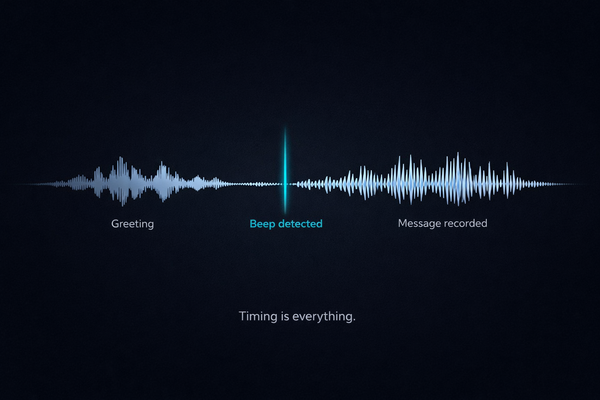[Marketing] AI and Python: Insights from Michael Kennedy on the Future of Programming
![[Marketing] AI and Python: Insights from Michael Kennedy on the Future of Programming](/content/images/size/w1200/2025/06/10x-coding-with-AI-.png)
Programming is evolving at breakneck speed, and Python developers need to embrace AI or risk being left behind. Michael Kennedy, host of Talk Python to Me, shares his insights on navigating this transformation.
In this episode of Anyreach Roundtable, Richard Lin speaks with Michael Kennedy, host of the popular Talk Python to Me podcast, about how AI is revolutionizing programming education and practice. They explore the challenges of maintaining deep learning skills in an age of instant answers, the importance of choosing the right AI models, and how non-technical professionals are leveraging Python and AI to unlock groundbreaking discoveries. Michael shares practical insights on AI tool adoption and offers a roadmap for developers looking to thrive in an AI-augmented future.
Key Takeaways
• Deep Learning vs. Quick Fixes – AI's instant gratification is creating a dangerous trend away from deep, sustained learning that builds true expertise.
• Model Selection Matters – Most people underutilize AI by sticking with base models instead of choosing specialized versions optimized for their specific tasks.
• Prompt Engineering is Critical – The biggest mistake users make is providing too little context and detail when prompting AI systems.
• Python as AI's Native Language – Python's accessibility makes it the perfect bridge language for AI adoption across disciplines.
• AI-Augmented Careers – Professionals who learn to leverage AI tools effectively will have a massive advantage over those who resist adoption.
The Democratization of Programming Through Python
Michael Kennedy has witnessed firsthand how Python transformed from a niche programming language into the backbone of modern AI development. His journey hosting Talk Python to Me began when there were no Python podcasts available – a stark contrast to today's landscape where Python leads AI development worldwide.
The transformation wasn't accidental. Python's rise in AI stems from its earlier success in data science, particularly around 2012 when tools like Jupyter Notebooks made programming accessible to non-programmers.
This accessibility created a foundation that proved perfect for AI adoption, as researchers and domain experts could leverage powerful tools without deep programming expertise.
Unexpected Discoveries: When Non-Programmers Meet AI
One of Michael's most compelling stories involves Cornelius Van Litt, a medieval Islamic philosophy professor and librarian who taught himself Python and computer vision to study ancient scrolls. Using machine learning, he uncovered previously unknown connections between 14th-century philosophers by analyzing scroll patterns and signatures.
This example illustrates a broader trend: as AI tools become more accessible, we're witnessing a democratization of programming that enables domain experts to make discoveries previously impossible.
The Double-Edged Sword of AI in Education
While celebrating AI's potential, Michael identifies a concerning trend in how people approach learning. The instant gratification of AI responses is eroding patience for deep, sustained learning.
This shift toward surface-level engagement threatens the development of expertise necessary to ask the interesting questions that lead to breakthrough discoveries. The challenge for educators is helping people understand that while AI is an incredible tool, deep domain knowledge remains essential for creative problem-solving.
The Art of Effective AI Interaction
Michael observes that most people dramatically underutilize AI tools due to two key mistakes: using the wrong models and providing insufficient context.
Choosing the Right Tool for the Job
Many users stick with basic models like GPT-4o when specialized versions like O1 Pro would deliver far superior results. Different models excel at different tasks – some for reasoning, others for coding, others for creative work.
The Context Problem
The biggest mistake Michael sees is the tendency to give AI tools minimal information, treating them like human colleagues who share contextual understanding.
Effective AI interaction requires detailed prompts that include context, constraints, background information, and specific requirements – much like briefing a new team member on a complex project.
AI as the Ultimate Productivity Multiplier
Michael's most powerful insight centers on AI as a "stem cell employee" – a tool that can manifest as whatever professional expertise you need in the moment.
He cites examples of AI serving multiple roles in a single month: lawyer, virtual assistant, programmer, and research assistant – each worth hundreds of dollars per hour if hired separately.
The Productivity Revolution in Practice
Michael's experience with agentic AI tools reveals their transformative potential. He describes solving complex, long-standing codebase issues in hours rather than months by leveraging AI agents that can work iteratively on problems.
This isn't just about speed – it's about enabling professionals to tackle challenges that were previously economically unfeasible to address.
The Skills That Will Matter Most
As AI capabilities expand, Michael identifies two critical skills for future success:
Deep Domain Knowledge: The ability to ask interesting, unexpected questions that lead to breakthrough discoveries.
AI Orchestration: The managerial skills needed to effectively direct AI tools – the same skills that make great managers successful with human teams.
Looking Ahead: The AI-Native Workplace
Michael sees a clear trend toward AI-native hiring practices, with companies increasingly unwilling to hire professionals who haven't embraced AI tools. The productivity gap between AI-augmented workers and traditional workers is simply too significant to ignore.
Practical Recommendations for Developers
For developers looking to thrive in an AI-augmented future, Michael recommends:
- Learn Basic Python: Even minimal Python knowledge unlocks powerful AI capabilities
- Invest in Premium AI Tools: The difference between base and advanced models is substantial
- Master Prompt Engineering: Treat AI like a new team member who needs detailed briefings
- Embrace AI-Native Tools: From cursor to Claude Code, agentic programming tools are game-changers
- Maintain Deep Learning Habits: Don't let AI's convenience erode your ability to think deeply
Conclusion
Michael Kennedy's insights offer a roadmap for navigating the AI revolution in programming. The key isn't choosing between human expertise and AI capability – it's learning to orchestrate both effectively. As he puts it, AI won't replace programmers, but programmers who know how to leverage AI will replace those who don't.
The future belongs to professionals who can maintain deep domain expertise while maximizing AI's productivity benefits. For Python developers, this future is already here – the question is whether you're ready to embrace it.
How to connect with Michael from Talk Python
Keywords: AI programming, Python development, machine learning, AI tools, programming education, developer productivity, agentic AI, prompt engineering, AI adoption




![[AI Digest] Agents Coordinate Plan Deploy Scale](/content/images/size/w600/2025/07/Daily-AI-Digest.png)